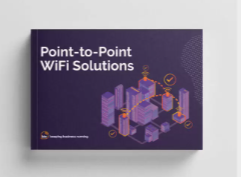Recent studies conducted by The British Education Suppliers Association (BESA), E-Learning Foundation and other educational authorities suggest pupils in England are at risk of missing out because their schools do not have good enough WiFi solutions.
Robin Price (RP) Managing Director, Michael Wilkinson (MW) Sales Director, Gareth Tomlin (GT) Technical Director and Mike Allen (MA) Operations Director at KBR WiFi, explain the importance of wireless internet in education and the learning process:
Why do you believe the internet is so important for education?
MW: “The internet is important for education because, provided that it is securely managed, there is a huge amount of educational material on the internet.”
Why do you believe that WiFi, in particular, is so important for education?
MA: “Flexible learning and mobility is the future of IT. A good wireless network must be installed to allow schools to embrace this mobility to ensure learning is aligned with current technology trends. Almost all devices used for learning require a wireless connection or are wireless enabled. Couple this with BYOD (Bring Your Own Device) and the need for shared resources and security, the wireless network becomes a number one priority.”
GT: “Education is rapidly moving towards mobile learning on the likes of iPads, Android Tablets and Google Chromebooks. These devices can only communicate with the school’s network over WiFi as they have no wired network port. One of the main reasons for this is the fantastic choice of educational applications and the fact that students are so comfortable using these types of devices in their homes. Lessons are now being written around this technology which means the lesson cannot be taught without fast, reliable WiFi and suitable internet access.”
How does WiFi encourage collaboration?
RP: “Students can work from the opposite side of the world with students in the UK, and they can help each other. WiFi delivers information irrespective of where the student is; the internet holds the world’s knowledge. The hard part is sifting through the mountain of information.”
GT: “The internet can bring people together using video conferencing technology, emails and online resources. The means teachers can access the knowledge of people around the globe for special lectures, and it means children who can’t attend schools due to illness or disability can take part via video conferencing.”
What does WiFi access give schools the power to do?
MW: “Over the last few years the use of iPads and personal devices has multiplied and they are now being used for video streaming as well as downloading data. This means that the use of the wireless network has increased to accommodate this. WiFi also allows a more flexible approach to learning which makes education more inclusive.”
How do you see the internet being used for education in the next three years?
GT: “There will certainly be a general increase in usage. Students will have their own 1-to-1 tablet PC as opposed to sharing school-owned devices. I can see “the cloud” being used more for both teaching and storage. Students will have their homework set in an online portal where it can be completed at home for the teacher to then mark.”
“I expect schools to increasingly utilise augmented reality technology, especially for younger children. More and more books are being published now with augmented reality features and there has been an increase in the number of augmented reality apps available on iPads, etc.. This type of technology is an excellent way to motivate early learners and relies on good WiFi and strong connection to the internet.”
What we’ve learnt is that a WiFi connection is no longer a luxury in education institutes – it’s a key ingredient. There is also a big difference between the ‘internet’ and ‘WiFi’ when it comes down to teaching and learning implications. Poor WiFi in schools, colleges and universities, means an entire generation of technology, such as tablets and mobile devices, are not useable in classrooms for both students and staff, which puts limitations on learning. Therefore, Wi Fi in education is vital and almost always cost effective.
If you have any questions about how WiFi can improve learning in your school or college at a flexible cost, please call: 0191 492 1492 or email: info@kbr.co.uk

